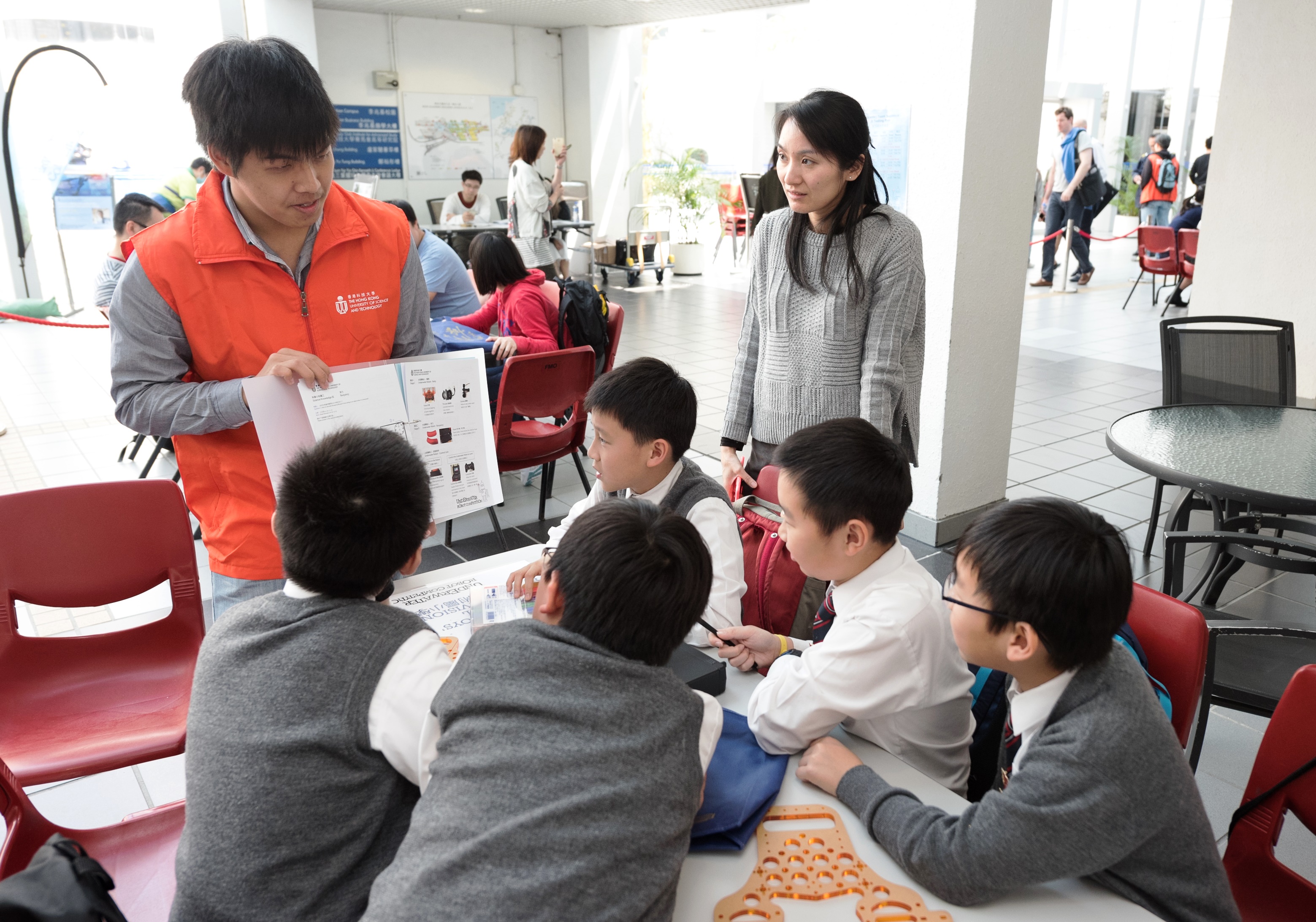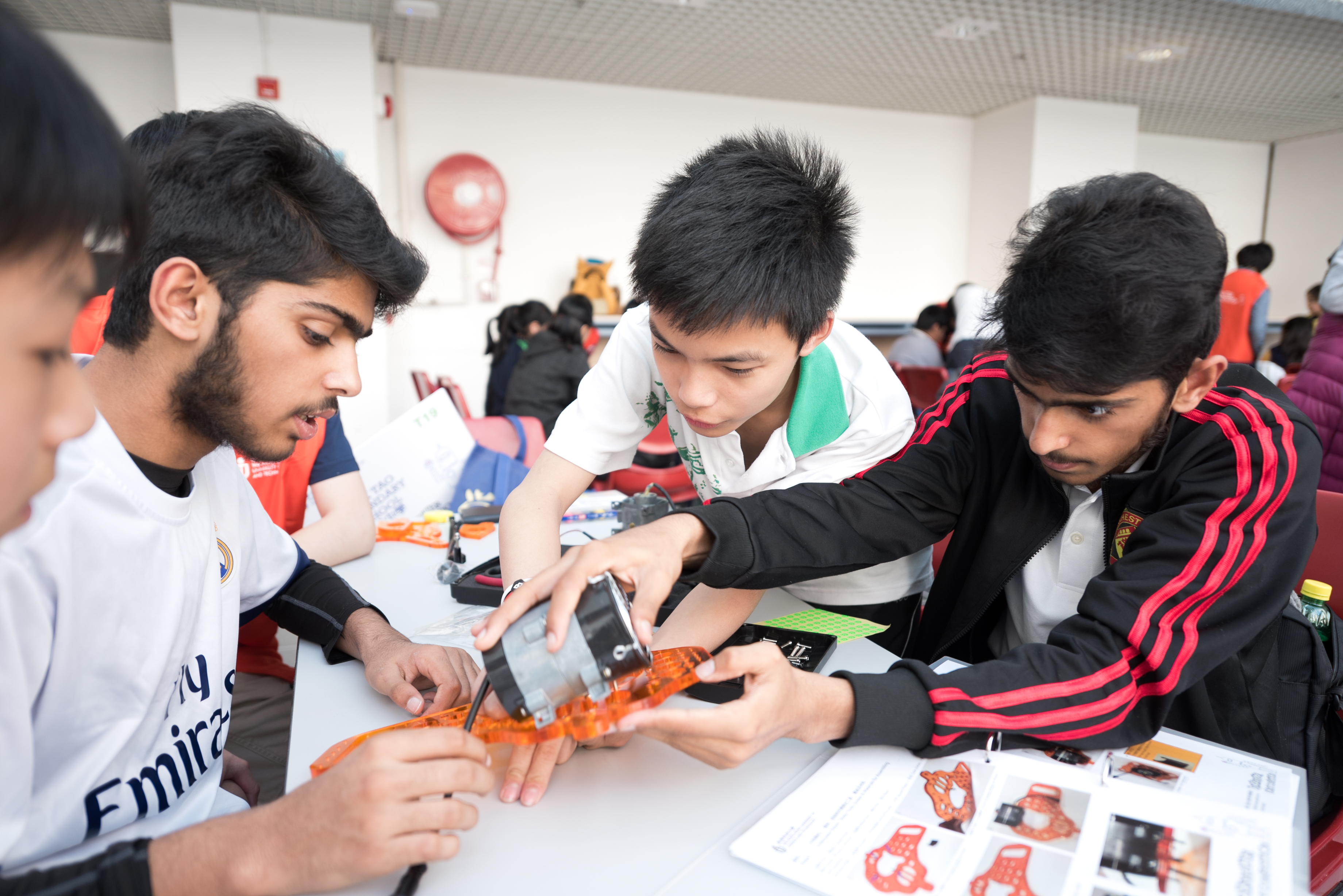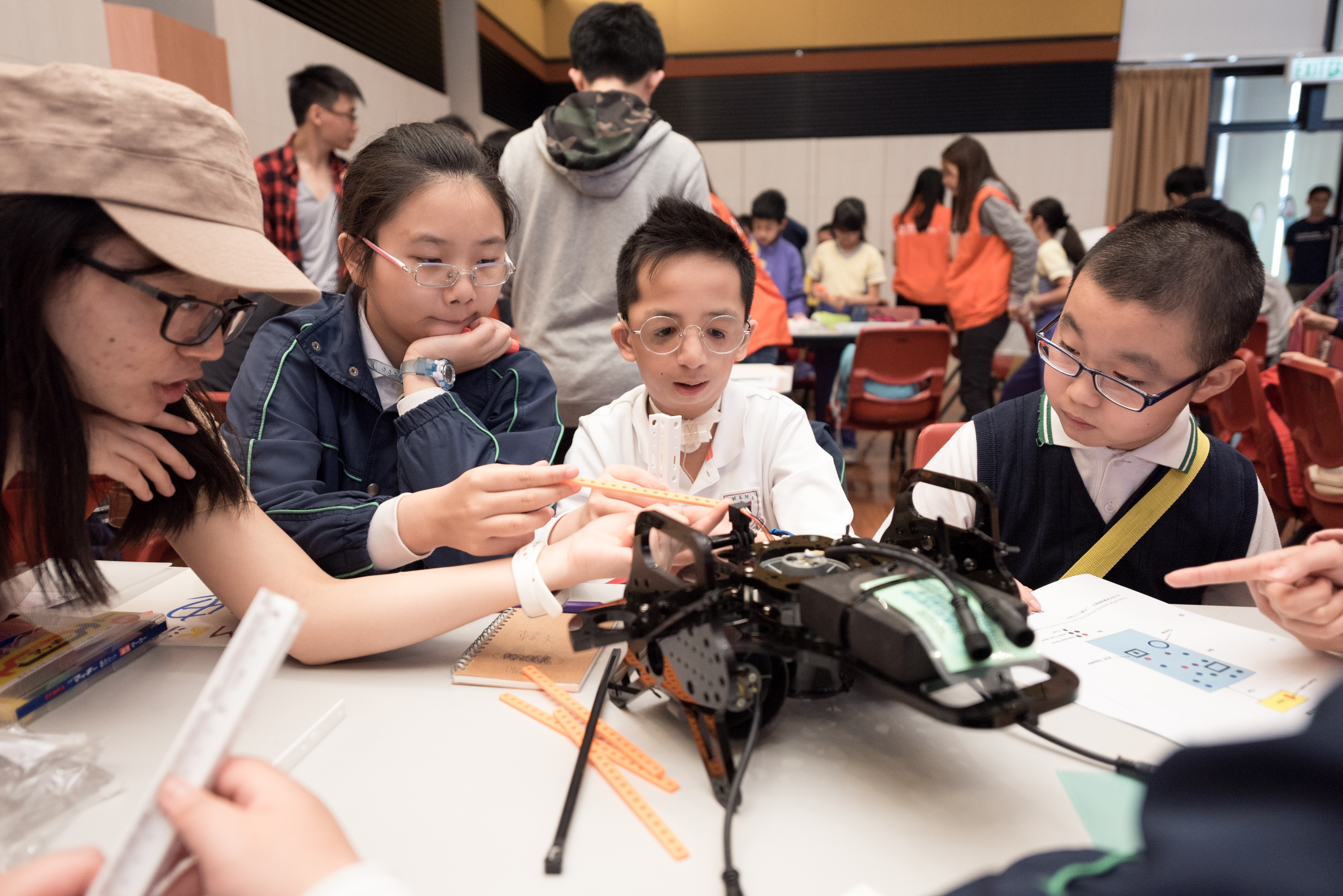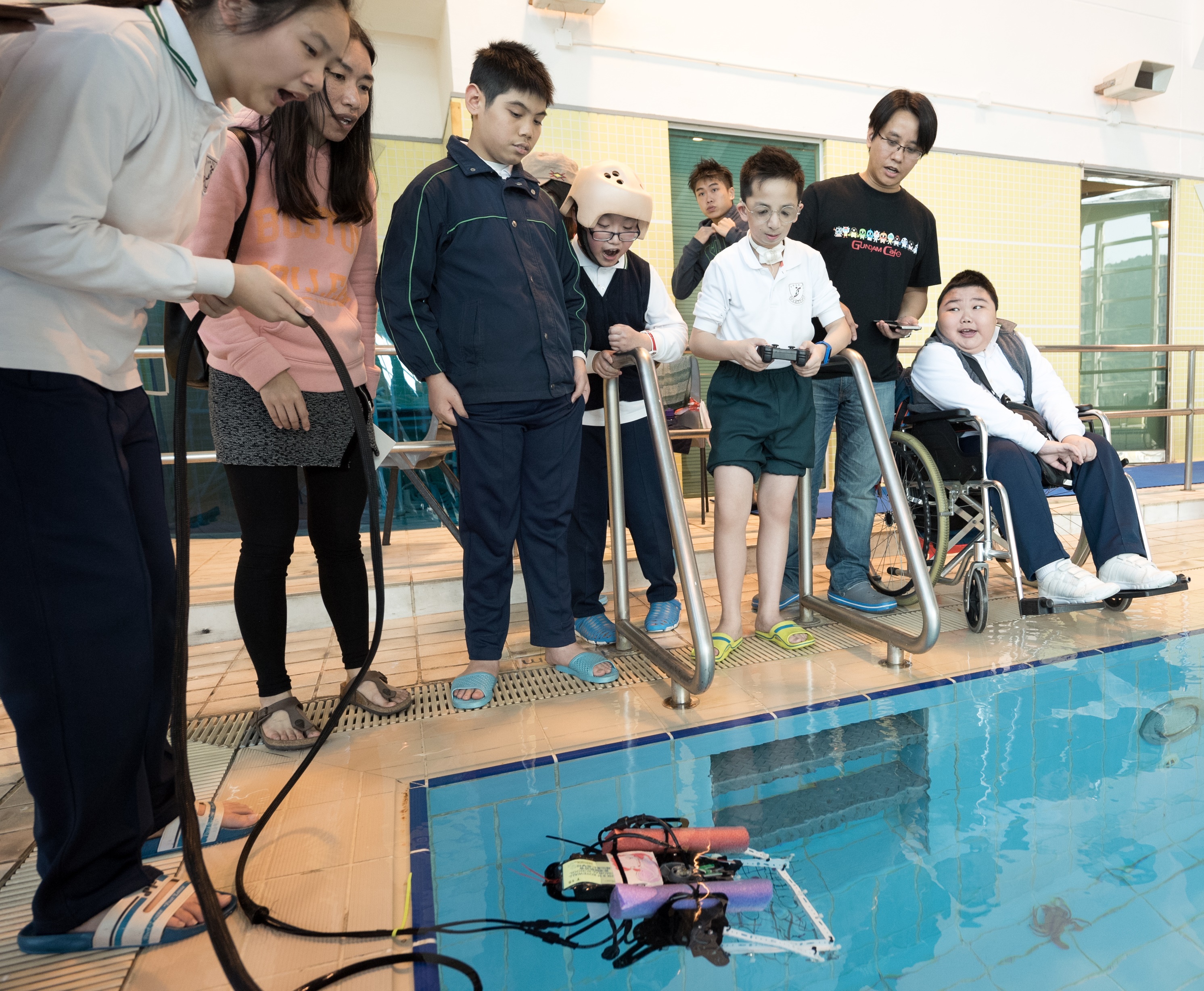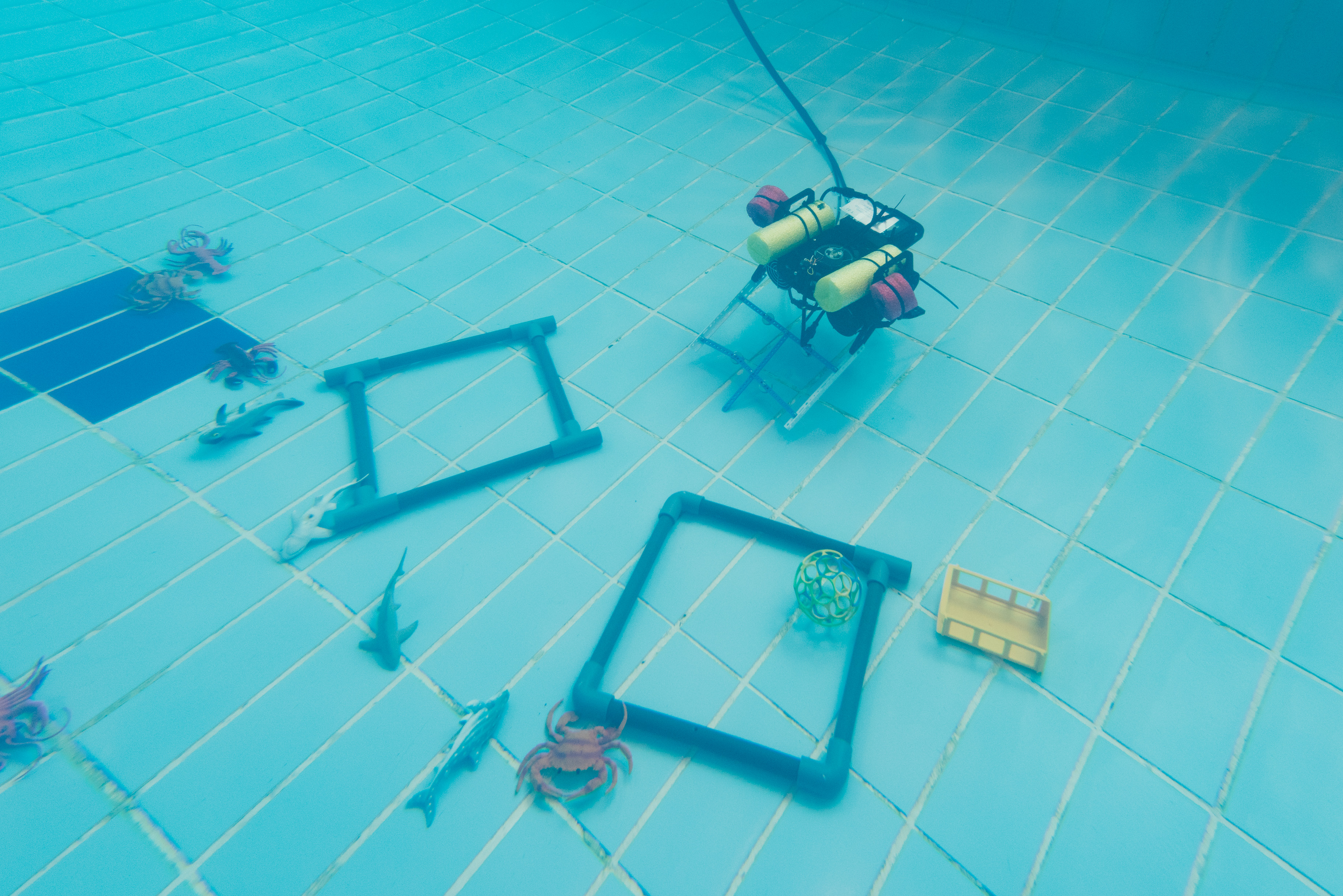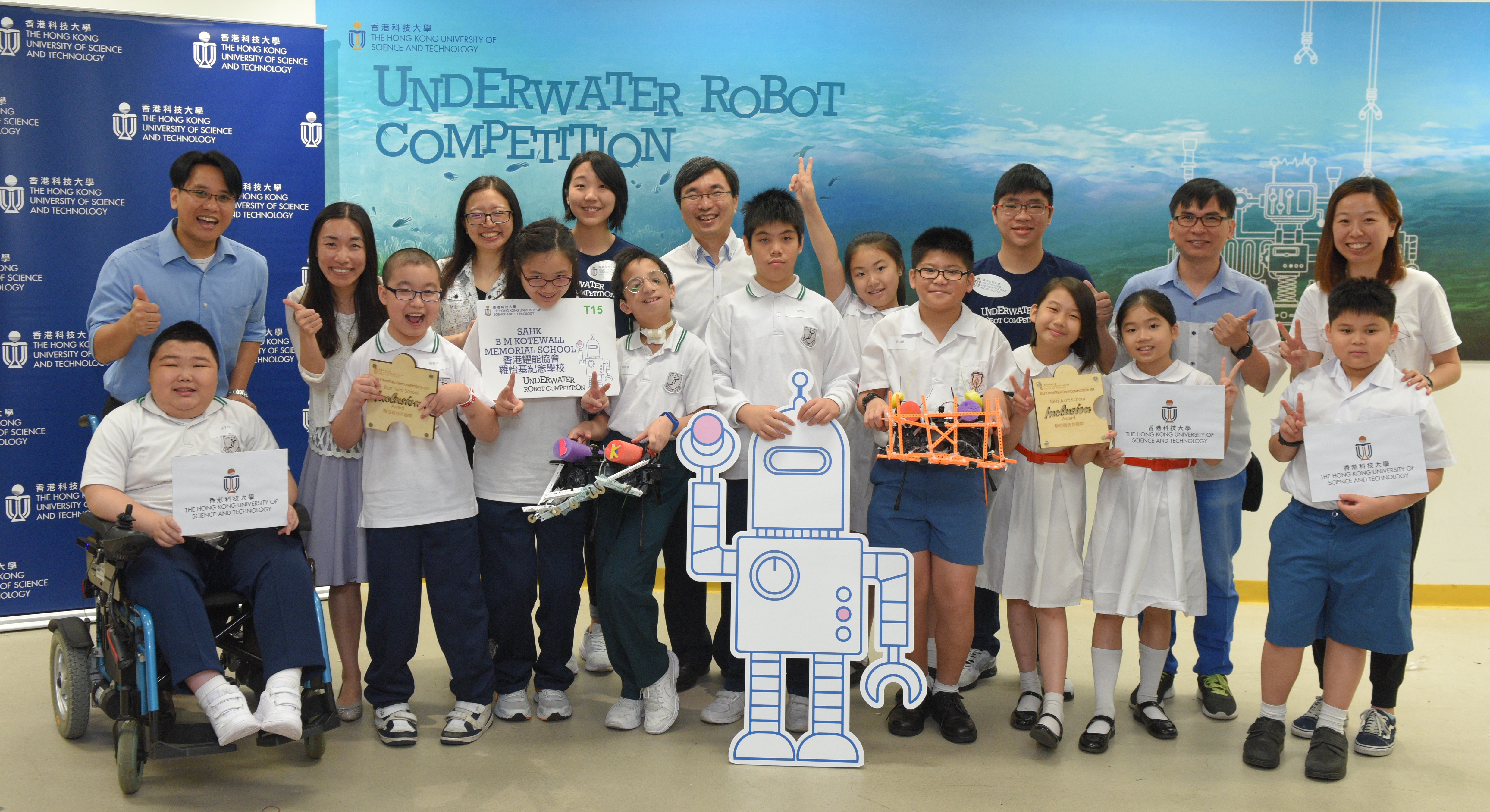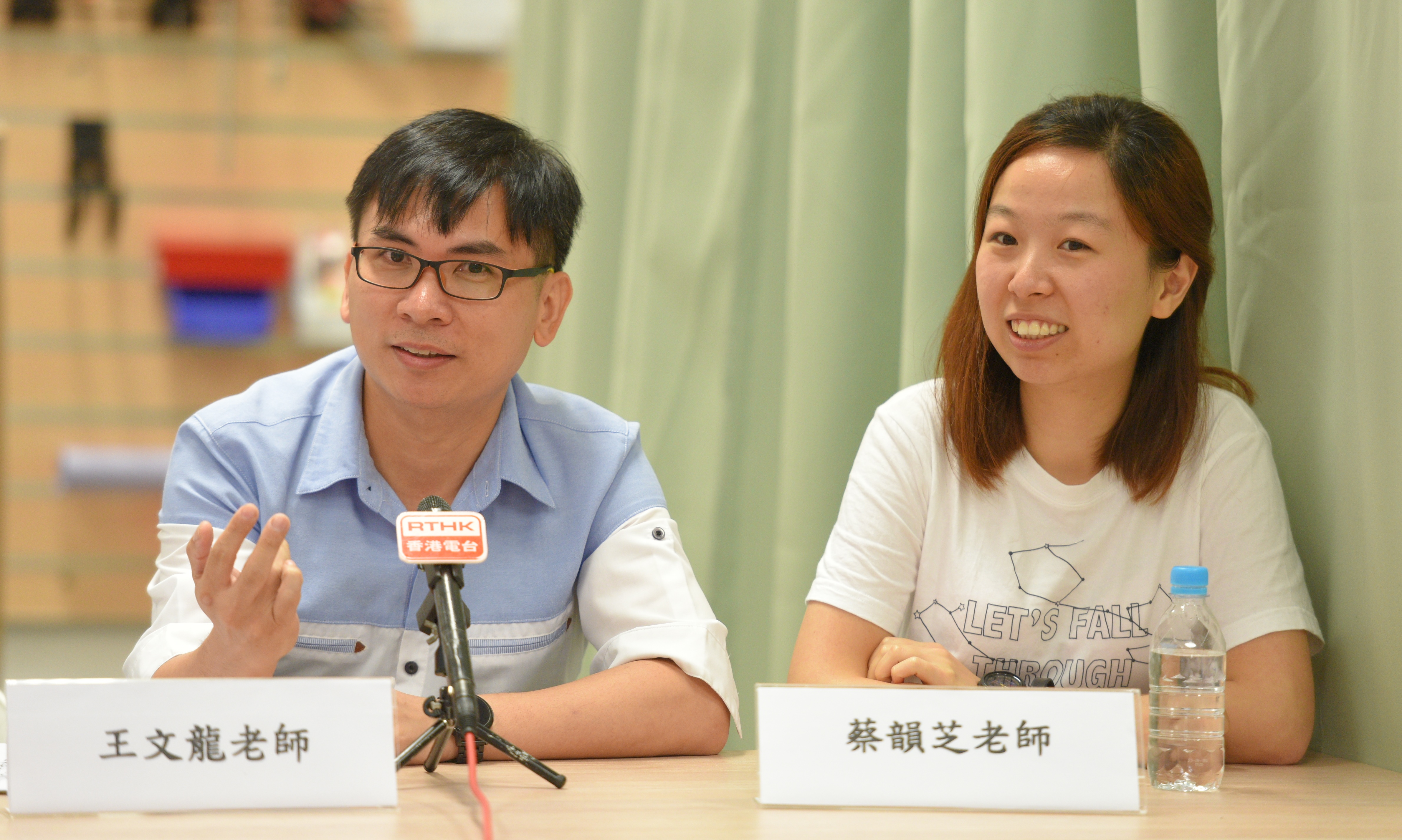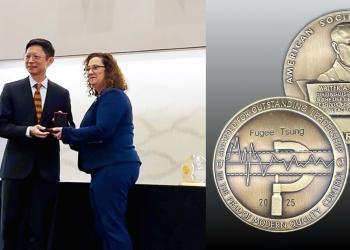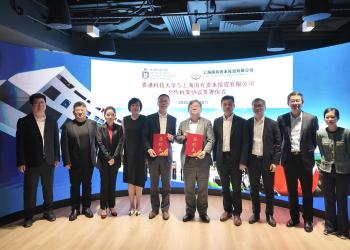HKUST Underwater Robot Competition promotes STEAM education to youngsters from a wide spectrum
The Hong Kong University of Science and Technology (HKUST) hosted its annual Underwater Robot Competition and a record high 300 students from 42 different primary and secondary school signed up for the four-day event. As part of the University’s effort to promote inclusion and robotics education among the wider community, the Competition invited students from mainstream schools, students with special educational needs (SEN), physical disability, as well as ethnic minorities to take part and make their own inventions.
The HKUST Center for Global & Community Engagement (GCE) held a half-day workshop prior to the Competition, where nearly 40 student mentors, all of whom coming from different disciplines, taught the participants basics of robot making. This was also the first mentoring collaboration among HKUST, The Education University of Hong Kong & The Hong Kong Polytechnic University. These student mentors were responsible to give guidance to school teams during their competition. All schools then had to go on their own to design and build their own underwater robot from scratch.
The competition had 2 parts, one of which would see each school sending their own robot to complete different underwater missions against time to score, such as collecting, moving and building of items. A second part would require three schools to make their robots work together. Schools that demonstrated the best teamwork in the second part were awarded the Best Joint School Inclusion Award. In the competition, they would learn the tips of marine conservation, such as cleaning up trash and building coral towers in the sea bed.
“We are glad to receive such an overwhelming response,” said Prof Tim Woo, Director of the Centre for GCE. “Not only did students get to learn the basics of Robotics, but they also had the opportunity to know how Science, Technology, Engineering, Arts, and Mathematics (STEAM) work in the real world. The Competition is a great platform for students from different cultural backgrounds and different educational needs to work together.”
This is the third year HKUST organized the Underwater Robot Competition. The Competition had attracted more than 600 students from 85 schools to participate since it first commenced in 2015.
Notes: STEAM stands for Science, Technology, Engineering, Arts and Maths
About The Hong Kong University of Science and Technology
The Hong Kong University of Science and Technology (HKUST) (www-dev2017.ust.hk) is a world-class research university that focuses on science, technology and business as well as humanities and social science. HKUST offers an international campus, and a holistic and interdisciplinary pedagogy to nurture well-rounded graduates with global vision, a strong entrepreneurial spirit and innovative thinking. HKUST attained the highest proportion of internationally excellent research work in the Research Assessment Exercise 2014 of Hong Kong’s University Grants Committee, and is the world’s second in the latest QS’ Top 50 under 50 ranking. Its graduates were ranked 13th worldwide and top in Greater China in Global Employability University Survey 2016.
1. On the day of the Underwater Robot Competition, where students learnt about basic skills in making robots.
2. Students design and build the robots from scratch.
3. Inter-school underwater robot competition.
4. Joint school competition that demonstrated great teamwork.
5. Sharing of experience and fond memories from participating teams.
For media enquiries:








